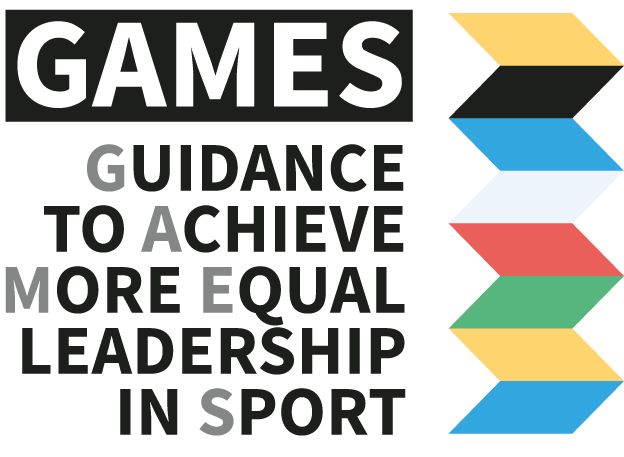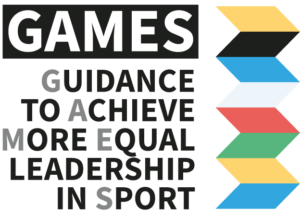Kirsty Coventry’s election as the 10th - and first female - President of the International Olympic Committee marks a landmark moment for the Olympic movement and beyond.
A five-time Olympian and experienced policymaker, Ms. Coventry has pledged to place empowerment, equality, and solidarity at the heart of her presidency. Her election sends a strong signal to the world: inclusion in sport leadership is not an aspiration - it is a necessity. Her priorities reflect key pillars of the EU Gender Equality Strategy 2020–2025 and the newly adopted Roadmap for Women’s Rights (2025), which call for women's full and equal participation in leadership across all sectors - including sport. Besides, thus reflects the democratic and economic value of women in leadership, highlighted in the 2025 Gender Equality Report and recent European Parliament resolutions.
In this regard, the IOC election also underscores the topicality of the GAMES project (April 2022 – March 2024) coordinated by the EOC EU Office and involving 8 European NOCs (Belgium, Czech Republic, Germany, Greece, Ireland, Latvia, North Macedonia and Turkiye) as well as renowned experts in the field of gender equality and good governance such as Equal Rights in Sports and I Trust Sport.
Notably, the Baseline Study on Gender Equality in Leadership carried out in the framework of the GAMES project revealed that, across surveyed NOCs and National Federations, women still held fewer than 30% of board roles, and often lacked access to structured support systems, such as mentorship, networking or leadership training. Accordingly, the GAMES Pool of Actions provided a roadmap to address these barriers and encourage sustainable change for example by setting term limits; reforming election and nomination procedures; as well as developing mentorship programmes and career-transition pathways.
In this context, the GAMES project echo priorities outlined in Coventry’s manifesto, such as "supporting leadership development for women across the Olympic Movement" and "reforming governance to reflect our diverse global community". Besides, the legacy of the GAMES project serves as both a blueprint and a bridge - linking concrete actions with Olympic-level commitments to gender equality.
Therefore, as we mark this historic milestone, Kirsty Coventry’s election reflects a growing commitment of the Olympic movement to adopt concrete strategies to reach equal, inclusive, transparent and values-based sport governance across all levels of European sport.
A five-time Olympian and experienced policymaker, Ms. Coventry has pledged to place empowerment, equality, and solidarity at the heart of her presidency. Her election sends a strong signal to the world: inclusion in sport leadership is not an aspiration - it is a necessity. Her priorities reflect key pillars of the EU Gender Equality Strategy 2020–2025 and the newly adopted Roadmap for Women’s Rights (2025), which call for women's full and equal participation in leadership across all sectors - including sport. Besides, thus reflects the democratic and economic value of women in leadership, highlighted in the 2025 Gender Equality Report and recent European Parliament resolutions.
In this regard, the IOC election also underscores the topicality of the GAMES project (April 2022 – March 2024) coordinated by the EOC EU Office and involving 8 European NOCs (Belgium, Czech Republic, Germany, Greece, Ireland, Latvia, North Macedonia and Turkiye) as well as renowned experts in the field of gender equality and good governance such as Equal Rights in Sports and I Trust Sport.
Notably, the Baseline Study on Gender Equality in Leadership carried out in the framework of the GAMES project revealed that, across surveyed NOCs and National Federations, women still held fewer than 30% of board roles, and often lacked access to structured support systems, such as mentorship, networking or leadership training. Accordingly, the GAMES Pool of Actions provided a roadmap to address these barriers and encourage sustainable change for example by setting term limits; reforming election and nomination procedures; as well as developing mentorship programmes and career-transition pathways.
In this context, the GAMES project echo priorities outlined in Coventry’s manifesto, such as "supporting leadership development for women across the Olympic Movement" and "reforming governance to reflect our diverse global community". Besides, the legacy of the GAMES project serves as both a blueprint and a bridge - linking concrete actions with Olympic-level commitments to gender equality.
Therefore, as we mark this historic milestone, Kirsty Coventry’s election reflects a growing commitment of the Olympic movement to adopt concrete strategies to reach equal, inclusive, transparent and values-based sport governance across all levels of European sport.




